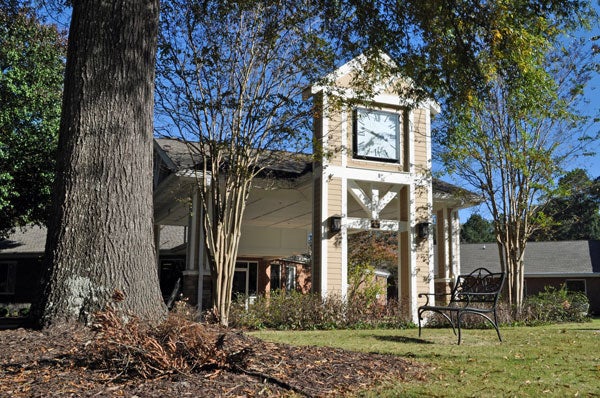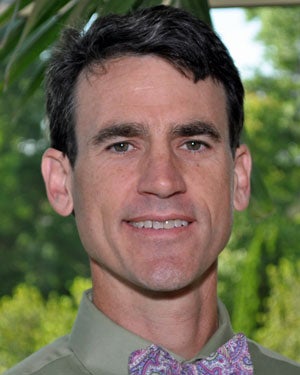Advance Directives: When the end of life is near, will your loved ones know what kind of care you want?
December 6, 2021
By: Rev. C. Craig Topple, M.Div., BCC
Categories: Healthy Living
At Highland Hills Village, the senior care facility of St. Mary’s Health System, creating a culture of safety is one of our values.
“Remember friend, as you pass by, as you are now, so once was I. As I am now, so you must be. Prepare yourself to follow me.” – Tombstone in Ashby, Massachusetts
She is smiling. She sits in her wheelchair watching a Braves game – truly one of her favorite pastimes – right up there with singing old hymns. Her frail legs crossed, she has recently crossed into her tenth decade of life. Will this be her last season to see the Braves win another pennant, much less the World Series?
I check her chart to see what her end-of-life care preferences are: the funeral home she wants to use, religious preference, the health treatments she would prefer. Her chart indicates she is “full code.” This means that were she to experience a life-ending incident, clinical staff would take every measure possible at their disposal to keep her alive. Those measures can include cardiopulmonary resuscitation (CPR), mechanical ventilation (a “breathing machine”), medications, feeding tubes, artificial nutrition, dialysis, and intravenous (IV) fluids. For a person of her age, frailty, and condition, these types of interventions often do more harm than good; and while they could extend life a little longer, they rarely result in equivalent or improved quality of life. I wonder if this treatment is actually what she would want.
Her devoted husband visits her often. When I speak to him about this, his response is, “I didn’t know what ‘full code’ meant. She wouldn’t want that, and I don’t either.”
Another resident’s husband also comes to visit his wife regularly. He and his wife love to take walks together, especially on beautiful fall days in Georgia. His wife is also “full code.” When I mention this to him and explain what it means, he responds, “We discussed that years ago. I don’t think that would be good for her now.”
The challenge in these two scenarios is that the people in question have late-stage dementia; under state law, they no longer have decision-making capacity for such matters. If we don’t have their preference in writing…
- the treatment preferences the person in question wants are uncertain; and,
- the decisions are left to their next of kin.
Because we were able to speak with the next of kin of these two women, we were able to take the steps to change their charts accordingly. Now, when the inevitable comes, the care they will receive will align with the care they would want if they were able to express their preferences.
Planning now in case you can’t later
Advance Care Planning. This term refers to putting decisions in writing now in case you aren’t able to make those decisions later. Dementia is one cause of such decisional incapacity, but there are others; for example, head injury, coma, certain strokes, and the end stages of many diseases.
Most of us don’t think a lot about our death. Whether we think about it or not, it is one of the few universal experiences of human existence. None of us knows when our time may come. Nor do we know if we will be awake, aware, and able to communicate as our time nears. Thus, planning for that time while we have the capacity to do so can result in better care for ourselves. It can also ease the burden for caregivers and loved ones we leave behind with respect to so many aspects of “what happens next.”
In my years as a Chaplain, I have seen many people struggle with decisions about end-of-life care for a loved one. All too often, these decisions, when they have to be made without written guidance from the person who is incapacitated, cause deep conflicts within families. This conflict can push people apart at exactly the time when they most need each other’s love and support.
Preventing harm. Nurturing healing.
At Highland Hills Village, the senior care facility of St. Mary’s Health System, creating a culture of safety is one of our values. This means, in the words of our Core Values, “We embrace a culture that prevents harm and nurtures a healing, safe environment for all.” Caring for others in their twilight years – a ministry of accompaniment – is humbling and such an honor for staff. We want to prevent harm and nurture healing by helping our residents die well when that time comes.
In Highland Hills’ clinical areas – Assisted Living and Memory Care – we seek to ensure the preferences of our residents are in writing so that their preferences are known and honored. In the Independent Living side, we strive to have these conversations annually with residents through seminars and workshops. Individuals make their treatment preferences known through a Living Will, a “Five Wishes” form, or the free Advance Directive form the state provides. The latter can be completed in minutes.
The goals of providing exquisite care are found in all three of St. Mary’s hospitals, as well. When a patient is admitted, they – or their loved one – are asked about Advance Directives: do they have one, can they locate it, and if not, would they like more information about one? Health care chaplains, as well as other healthcare professionals, are ready to assist with completing the form and/or providing more information.
The end result is that when the person has watched their last Braves game or taken their final walk, they and their family will be at peace knowing they will receive the kind of care they want. Isn’t that what we all want?
Ensuring those within our care receive the treatment they want is just one of the ways we honor them. These conversations are not easy, but they can be cathartic as they help us to think about what we want, and to have that conversation with those closest to us. We can all do our part by taking the time to prepare.
Learn more and download the Georgia Advance Directive for Health Care.
About the author

Rev. C. Craig Topple, M.Div., BCC, is a Chaplain with St. Mary’s Spiritual Care Department whose focal areas include Highland Hills Village as well as several clinical units at St. Mary’s Hospital. A graduate of Columbia Theological Seminary, he is ordained and endorsed by the Presbyterian Church (USA) and certified by the Association of Professional Chaplains.
